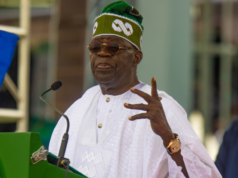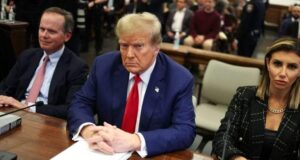Russia requires migrants to fill its growing labour shortages, Kremlin spokesperson Dmitry Peskov stated in an interview published Friday.
He acknowledged that the country’s demographic challenges were creating obstacles to national development.
“Migrants are a necessity,” Peskov said, speaking to the state-run news agency RIA Novosti.
“We have a tense demographic situation. Despite being the largest country in the world, our population is relatively small.”
The comments come after the Russian parliament recently approved a controversial law banning “child-free propaganda,” aimed at addressing the country’s declining birthrate by discouraging people from opting not to have children.
The legislation is part of a broader effort to tackle Russia’s demographic crisis, which has been exacerbated by the ongoing war in Ukraine.
“We need a workforce for dynamic development and to carry out our national projects,” Peskov continued, underscoring the government’s need for migrant workers.
He noted that Russia is open to migration to address its labour needs.
While there is official recognition of the need for migration, anti-migrant sentiment is prevalent in Russia, especially towards workers from Central Asia, who make up a significant portion of the labour force in various sectors.
In July, the Kremlin warned that Russia’s declining population poses a “disastrous” risk to its future.
The country’s population has been in decline since the fall of the Soviet Union, despite efforts by the government, such as generous subsidies and mortgage programs, to encourage larger families.
Russia’s demographic crisis is compounded by a low birthrate, which stood at 1.41 births per woman in 2023, well below the replacement rate of 2.0.
The country also faced high Covid mortality rates and the loss of hundreds of thousands of men who fled the country to avoid conscription into the Ukraine conflict.
According to Rosstat, Russia saw a 3.4 percent drop in the number of births during the first nine months of 2024, with only 920,200 babies born, the lowest number since the 1990s.

















